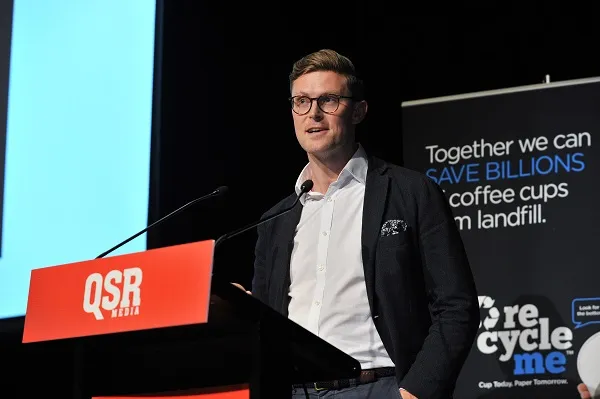
From brand advocates to shareholders: crowdfunding for QSRs
It is now extended to private companies after recently passed legislation.
Equity crowdfunding can activate a brand's customer base as they become shareholders who can help drive the business forward, Equitise co-founder Chris Gilbert said during the 2018 QSR Media Detpak Conference and Awards.
Recently, the Australian government has passed the Corporations Amendment (Crowd-sourced Funding for Proprietary Companies) Bill 2017 that extends equity crowdfunding to proprietary companies. This builds on the government's 2017 equity crowdfunding legislation, allowing businesses to do this without having to convert its status to an unlisted public company.
The new legislation will take effect in 28 days’ time from 12 September.
"What we do is enable people to share in the upside of an investment...It is a powerful way of getting capital," Gilbert remarked.
Loyalty a 'very strong factor' in crowdfunding
Brands, he said, will likely be successful in attracting funding if they have a strong social following and a big database. He also cited loyalty as a "very strong factor" in creating a successful crowdfunding campaign.
"You typically receive about 70% of your investment through crowdfunding from your immediate audience; that could be your friends and family, it could be your customer base and your social followers."
Gilbert also emphasised the importance of corporate hygiene: ensuring financials, shareholder documentation, staff contracts and others are in order.
"If your company hasn't been doing particularly well, then it's probably not a good time to do crowdfunding because you do have to show the financial elements of your company," he advised.
'No company's too small for crowdfunding'
Gilbert also stressed that no company is "too small" for crowdfunding but may possibly be cost-inefficient for bigger companies.
"If you're any more than 25 million dollars of revenue, I can probably say that you're potentially too big for crowdfunding. But there are other mechanisms around the space which you can use to raise money if that's the case. Initially, crowdfunding wasn't taken very seriously because [campaigns were] more of the gimmicky, Kickstarter-type investment. Big companies are now using crowdfunding to increase their investor traction," he said.
























